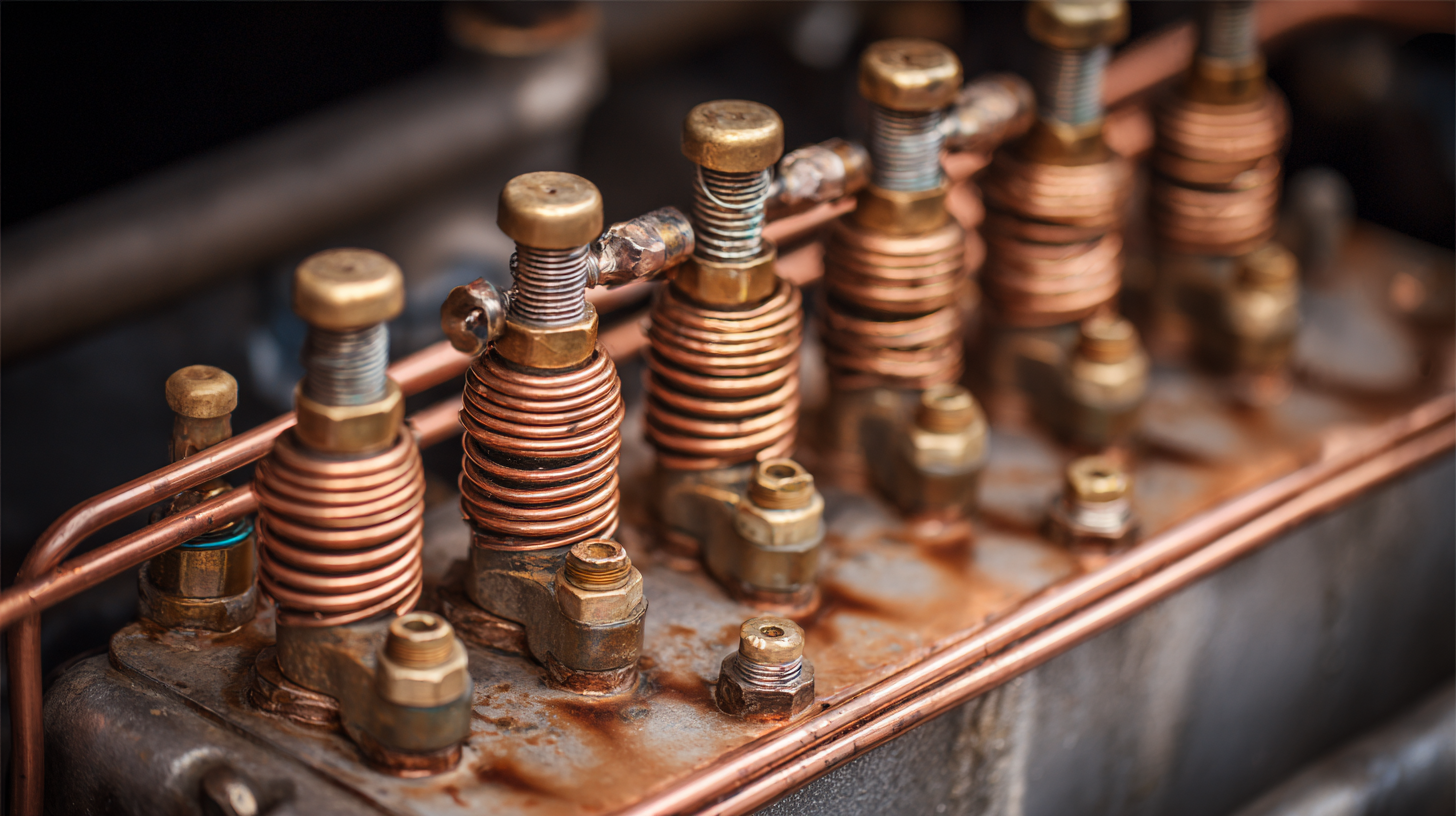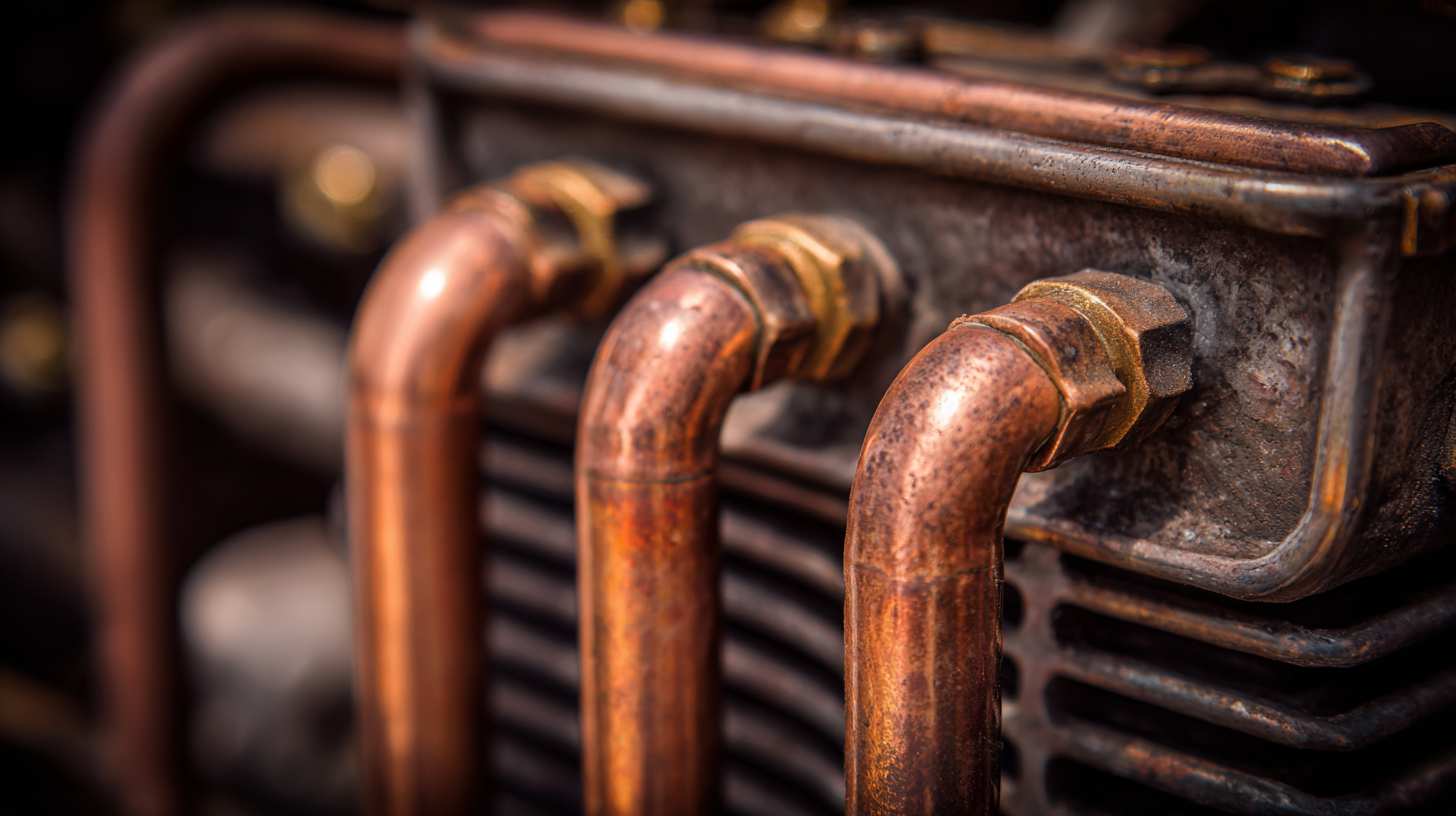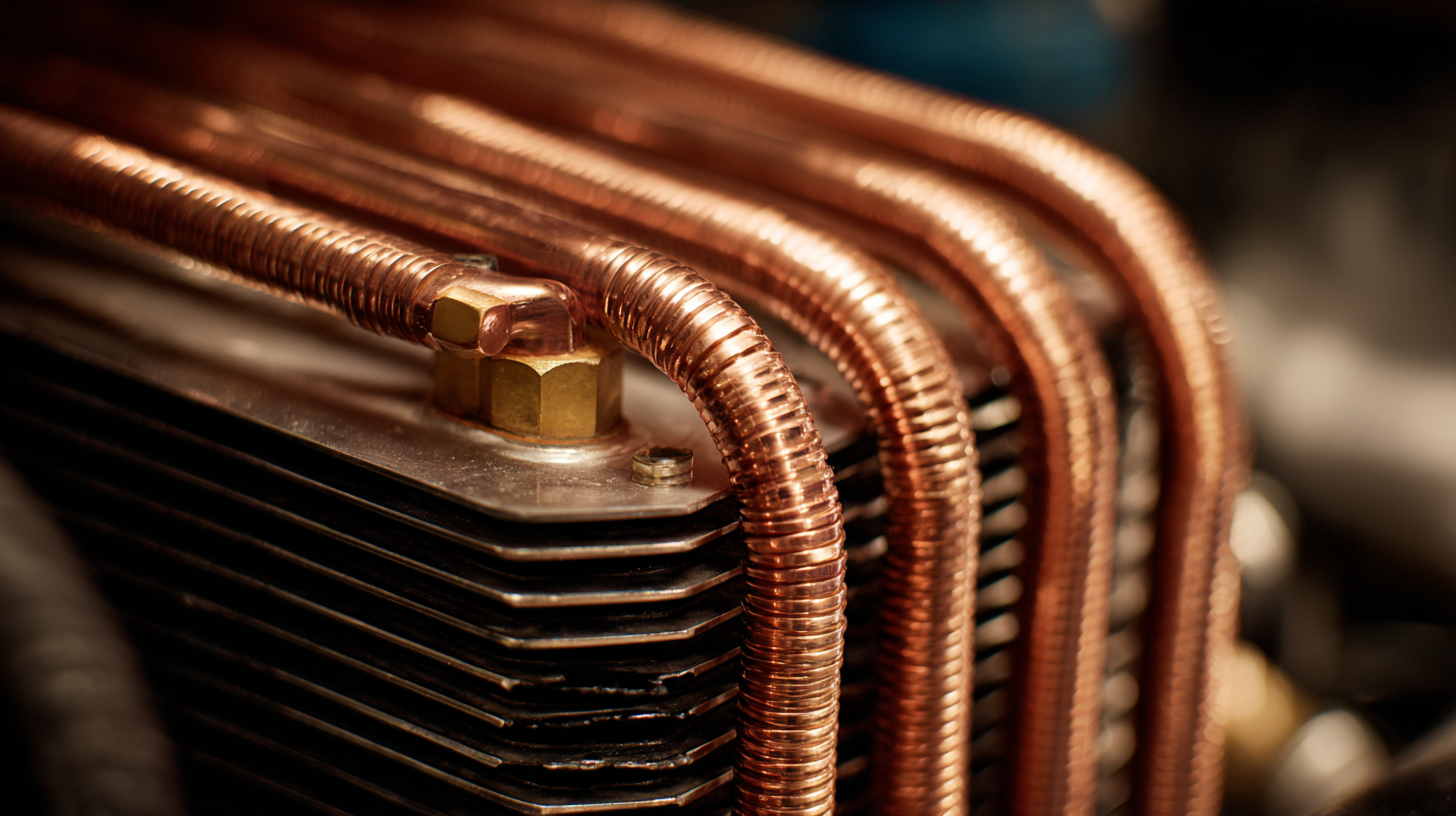In the world of automotive engineering, the significance of choosing the right cooling system cannot be overstated, especially when it comes to the Copper Engine Radiator. According to a recent industry report, nearly 60% of vehicle owners experience engine overheating issues directly correlated to radiator performance, which subsequently affects overall vehicle efficiency and longevity. Copper, known for its superior thermal conductivity and durability, has become the material of choice for performance enthusiasts and everyday drivers alike. With advancements in radiator technology, selecting the best Copper Engine Radiator can drastically enhance heat dissipation, contributing to optimal vehicle performance. This blog will guide you through the pivotal factors to consider, ensuring your choice not only meets but exceeds the demands of modern engines.

When selecting a copper engine radiator, several key factors should be considered to ensure optimal vehicle performance. First, the size and fit of the radiator are crucial. It is essential to ensure that the radiator matches the specifications of your vehicle’s engine compartment. A radiator that fits snugly will promote effective cooling, preventing overheating during operation. Take accurate measurements and refer to your vehicle's manual to find the appropriate dimensions.

Another important aspect is the cooling capacity of the radiator. Copper radiators are known for their excellent heat dissipation properties, but not all copper radiators are created equal. Investigate the core thickness and design of the radiator to ensure it can handle your engine's heat output, especially if modifications have been made for increased performance.
Additionally, consider the quality of the soldering and the overall construction, as a well-built radiator will withstand higher pressures and temperatures, providing longevity. Lastly, do not overlook warranty and manufacturer reputation, which can be indicators of reliability and support when issues arise.
Copper radiators have long been regarded as a superior choice for vehicle efficiency due to their remarkable thermal conductivity and durability. This unique ability allows copper to transfer heat more effectively than other materials, ensuring that your engine remains at an optimal temperature during operation. When the engine runs cooler, it not only enhances performance but also prolongs the life of critical components. This efficiency is paramount, especially in high-performance or heavy-duty vehicles that demand reliable cooling systems to prevent overheating.
Moreover, copper radiators offer a significant advantage in terms of repairability. Unlike aluminum radiators, which can be prone to corrosion and often require full replacement when damaged, copper radiators are easier to solder and mend. This means that a small leak or dent can often be repaired, offering both cost savings and sustained performance over time. Investing in a copper radiator can lead to reduced maintenance costs and improved vehicle efficiency, making it a wise choice for car enthusiasts and everyday drivers alike. As you consider options for your vehicle's cooling system, understanding these benefits can guide you towards a solution that maximizes performance and longevity.
When selecting a high-quality copper engine radiator for optimal vehicle performance, there are several key features to consider. Firstly, ensure that the radiator is constructed from pure copper, which offers superior thermal conductivity compared to aluminum alternatives. This property allows for more efficient heat dissipation, crucial for maintaining ideal engine temperatures during intense driving scenarios.
Additionally, look for radiators with enhanced fin design and thickness. High-density fins can significantly improve airflow, boosting the radiator's ability to transfer heat away from the engine. A thicker core not only provides more surface area for heat exchange but also adds durability, making the radiator less susceptible to damage from road debris or harsh environments. Lastly, pay attention to the welding quality; seamless welds indicate a robust build that can withstand high pressure and prevent leaks, ensuring long-term reliability.
When it comes to choosing the best copper engine radiator for optimal vehicle performance, avoiding common mistakes is crucial to ensure longevity and efficiency. One of the first pitfalls to watch out for is neglecting to consider compatibility with your vehicle. Not all radiators fit every model, and opting for a universal radiator can lead to improper fit, decreased cooling efficiency, and potential damage to your engine over time.
Another frequent mistake is failing to check the quality of the copper used in the radiator. Lower-grade copper may have a shorter lifespan and could lead to overheating and performance issues. It's essential to invest time in researching brands and understanding the specifications. Additionally, many buyers underestimate the importance of proper maintenance and installation. A poorly installed or inadequately maintained radiator can negate its performance benefits, leading to costly repairs down the line.
Keep these factors in mind to ensure that your investment in a copper radiator translates to improved vehicle performance.
 When considering the best copper engine radiator for optimal vehicle performance, it's essential to understand how copper compares to other common materials, such as aluminum. Recent studies show that copper radiators are superior in terms of heat transfer efficiency due to their higher thermal conductivity. This advantage is particularly crucial in high-performance applications where managing engine temperatures effectively can have a significant impact on overall performance.
When considering the best copper engine radiator for optimal vehicle performance, it's essential to understand how copper compares to other common materials, such as aluminum. Recent studies show that copper radiators are superior in terms of heat transfer efficiency due to their higher thermal conductivity. This advantage is particularly crucial in high-performance applications where managing engine temperatures effectively can have a significant impact on overall performance.
Furthermore, advancements in cooling technology, including the use of graphene oxide and other nanofluids, are offering new insights into radiator performance. Research indicates that integrating nanofluids into radiator systems can enhance heat transfer capabilities, making them a compelling option alongside traditional copper radiators. Another important consideration is the efficiency of different radiator designs; for instance, the comparative performance of porous wavy fins made from aluminum and copper under specific conditions can reveal how material properties influence overall vehicle cooling effectiveness. Evaluating these factors can guide vehicle owners in making informed decisions about radiator materials that align with their performance needs.






